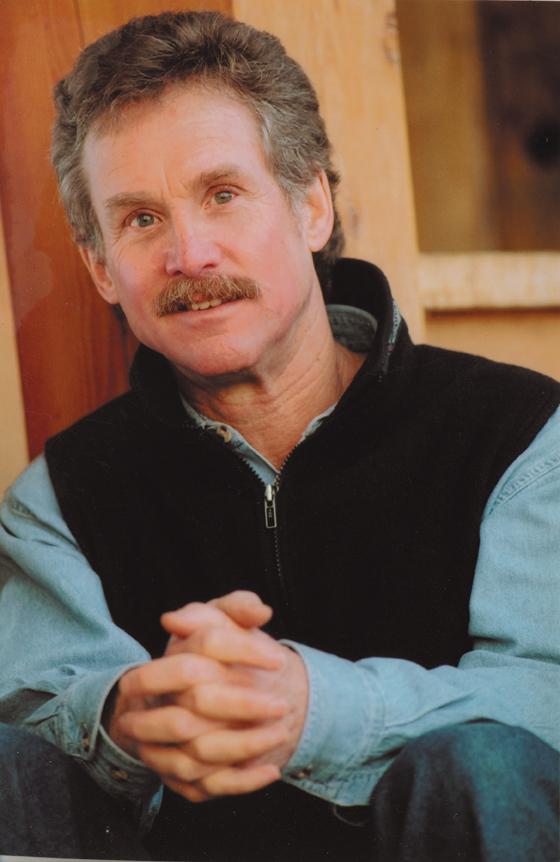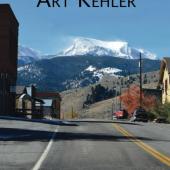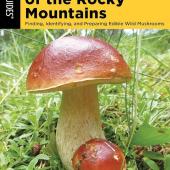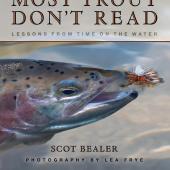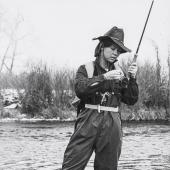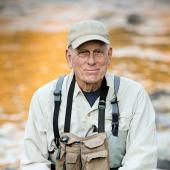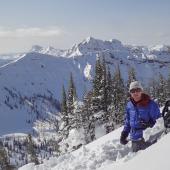Wordsmiths of Southwest Montana: David Quammen
Sitting down with author Dave Quammen.
Dave Quammen is one of the Northwest’s literature treasures, although he is nowhere near as well-known as he should be. He first gathered notice with his book The Song Of The Dodo, a 702-page look at remote-islands biology. Quammen is an earnest, quiet-spoken, fascinating man who likes handling big, complicated subjects in the most concise way he possibly can. Author of six acclaimed nonfiction titles and four books of fiction, Quammen has been honored with an Academy Award in Literature from the American Academy of Arts and Letters. He is an adventure lover and travels often to remote places of the world to explore and write about them. In lucid, penetrating prose, he takes his readers along his most disparate travels, investigating the rich, natural world in its ambivalence and complexity.
Does living in Montana influence your writing?
I don’t think living in Montana particularly influences my writing because most of what I write about and I’m interested in are far outside of Montana. I write a lot about field biology and the tropics. I write about travel, landscape, and history around the world, and then I come back to Montana to do the writing. It’s a great place to live and it agrees with my values and my priorities, but I don’t think it shapes my writing.
What responsibilities do you have to your readers?
This is actually an important question for me. I think any nonfiction writers’ responsibilities are to be interesting, to be entertaining, to be extremely accurate with facts, and to have something serious to say.
What’s the biggest challenge in your writing career?
Mmhh… Making a living is always a challenge. Trying to reach a larger audience is an important challenge. I’m always interested in reaching more people with the next book than I have reached in the last book, but I think the trickiest challenge for me is to use conscientiously, accurately factual material to tell a story in an imaginative, artistic way. The trick is the balance between using solid, accurately reported factual material to create graceful, fluid, dramatic shapes.
What is your daily writing regimen?
There’s really nothing magical about it. I get up in the morning, take a walk, come back, and make coffee. I go in and read for a little bit to wake my brain up, and then I generally start to rewrite my work from the previous day. I spend a few hours doing that; take a break for breakfast and then I work for another couple of hours trying to create some new work. Writing books takes discipline, so I never wait for inspiration to come, otherwise I’d never get anything done.
Were you a bookworm as a kid?
No. I’d say no. I wasn’t a particularly good reader on my own. I did read some. I liked to read some mystery and science fiction when I was a young kid, but I did not read a lot. But I wrote. From a very early age I knew I was interested in writing. Obviously I wouldn’t have been interested in writing if I had not also been reading things. I read about as much as the average kid, but unlike the average kid I also wanted to write stories, and poems, and plays myself.
What are your main hobbies or avocations?
These days bicycling and a little bit of bicycle-racing with some friends; in the winter is ice-hockey and telemark skiing. Those are more sports than hobbies. I don’t think of them as hobbies per se really. I love doing the gardening around the house and I do a lot of reading, but I don’t call these things “hobbies.” I guess I don’t use the word “hobby.”
What profession other than writing would you like to participate in, and why?
If I hadn’t been turned into a writer I probably would have turned into a biologist. I was interested in the natural world. I was always interested in biology and I was always interested in writing. I happened to have really good teachers for English, for writing and literature, and I never really had inspiring teachers in biology. If I had, I might have ended up as a biologist.
In general, which do you prefer as means of communication from the outside world: TV, newspapers, or the internet?
Radio. Although I do read newspapers online. I read The New York Times on the internet, each morning. And a few other things, some other obscure magazines. I listen to NPR when I’m doing things.
Where would you like to live if not in Montana?
Essentially I would not like to live permanently anywhere else but Montana, because I love living here. I’d live for a while in Paris, or parts of Indonesia, parts of Bali, but not permanently.
What’s your favorite drink?
Probably good, strong black coffee.
Why do evolution and nature interest you so much?
Nature interests me because it’s beautiful and complex and robust. Evolutionary theory interests me because it explains why nature is beautiful and complex and robust.
What do you think about peoples' tendency today to pay more attention to visual information or entertainment than reading? For instance, many say that people "read magazines" simply by looking at the photography and skip the articles. No matter how good they are and how much effort it takes for a writer to come up with that piece.
This trend isn’t new. Visual information is easy and vivid (though visual art—as distinct from mere information—of the sort you find in Picasso or Jackson Pollock or Mark Rothko, certainly isn’t for lazy people). To read writing requires more effort. More active engagement of the mind, than to look at flashy colored picture. This is why good writing will always be less popular than bad pictures, and why it will always be important to the living core of civilization, such as that may be.
What can one find through reading that cannot be found in images (photography,
videos, films, etc,), and why?
The art with which words are put together to make stories and evoke ideas.
BOOKS BY DAVID QUAMMEN
The Long Follow (2006)
The Reluctant Mr. Darwin (2006)
Monster of God (2003)
Origin of Species (2002)
The Boilerplate Rhino(2000)
Wild Thoughts from Wild Places (1998)
The Song of the Dodo (1996)
The Flight of the Iguana (1989)
Bloodline (1988)
The Soul of Viktor Tranko(1987)
Natural Acts (1985)
The Zolta Configuration (1983)
Appropriate Jobs (1980)
To Walk the Line (1970)


